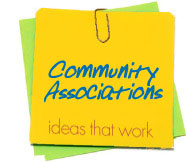Selective Enforcement Challenge for Community Associations
Selective CCR Enforcement
If you’ve served as a member of a community association‘s Board of Directors for any length of time, chances are you’ve heard the term “selective enforcement” when you have attempted to enforce the covenants. There is good reason for this: the selective enforcement defense is one of the most commonly used defenses to a Board’s covenant enforcement action. There is much misunderstanding among Board members and homeowners as to exactly what selective enforcement means. The purpose of this article is to provide an explanation of the underpinnings of the selective enforcement defense and to provide some guidance for insuring that your Board’s decisions can withstand a selective enforcement challenge.
A Board has a duty to enforce the covenants of a community in a procedurally fair and reasonable manner. The defense of selective enforcement arises when an owner argues a Board breached this duty.
There are two types of selective enforcement: 1) when an association acts arbitrarily by enforcing some covenants but fails to enforce others; and 2) when an association acts arbitrarily by enforcing the same covenant differently against one owner and another. The best reasoned case on this issue is a case from the Supreme Court of South Carolina, Palmetto Dunes v. Brown. In that case, the association’s covenants vested its Board with the power to approve or disapprove construction plans based on purely aesthetic considerations. Relying on that provision, the Board denied an owner, Brown’s, new home construction plans on the basis that the plans submitted by Brown showed a garage that “overpowered” the rest of the house. Brown argued to the Court that the Board’s decision was unreasonable and ar
The Court examined the Board’s reason for disapproving the home on aesthetic considerations. The Court look to see if the decision bore a reasonable relation to the other buildings in the community or the general plan of development. The Board presented evidence to the Court that Brown’s plans were different from the two similar houses. In addition, the Board explained to the Court that it approved the other two similar houses based upon construction plans, and was disappointed in the houses once built because they did not match the overall aesthetic of the community. Because of the appearance of the completed houses, the Board told the Court that they had decided not to approve any more houses with similar garages. The Court found in favor of the association, holding that the evidence did not justify a finding that the Board acted unreasonably in disapproving the house plans, even though it had previously approved similar plans; the decision was not arbitrary or capricious, but was based on well-reasoned value judgements.
In another case, the Georgia Court of Appeals held that a violating owner has the initial burden of proof to present evidence that an association enforced the covenants in an arbitrary or selective manner. Once that is done, the burden of proof shifts to the association to show why the present owner’s violation is different from other violations.
The homeowner in that case violated the architectural control provisions of the association’s governing legal documents by building a second driveway on his lot without receiving prior approval from the architectural control committee. Once informed of his violation, he submitted plans and specifications to the committee for approval. The committee denied his request and ultimately, the association brought suit to enforce the covenants. At trial, the homeowner presented sufficient evidence to show that the association acted in an arbitrary manner in denying his request by showing pictures of other homes in the community with second driveways. The association was not able to present any evidence as to the reason the other second driveways in the subdivision were permitted, but this owner’s request was denied. Since the Board could not put forth reasons for its decision, the owner won the case and kept his second driveway.
The basic lesson to take away from these two cases is that if an association’s documents give the Board authority to approve or disapprove a modification or make other decisions based on certain standards, even one as broad as “aesthetic considerations”, a Court will likely uphold a decision if there is a reasonable explanation for why the Board made the decision as it did. For example, in the Palmetto Dunes case, the Board had the power to approve or disapprove a house based on purely aesthetic considerations, and in court the Board was able to point to specific reasons that it denied the owner’s plans; namely, an overpowering garage. The Board was also able to distinguish the house from the similar houses cited by the owner and to explain why it had decided to no longer approve houses with similar garages. In contrast, in the second case, the Board was unable to provide evidence to the Court as to why it made the decision not to allow a second driveway. As a consequence, the Court found that the Board’s decision was arbitrary and capricious and upheld the owner’s claim of selective enforcement.
With this in mind, a Board can help to protect itself from claims of selective enforcement by insuring that its decisions to approve or disapprove owners’ plans or proposed modification are supported by well-reasoned explanations. If there are any homes in the community similar to the one that the Board disapproves, the Board should be able to identify distinguishing factors between the disapproved modification and the one that was approved, or a good reason that the Board had for previously approving similar houses but not to the present one. Boards should also remember to keep accurate records of each decision in the association’s records, including notations of the reasons for the Board’s decision. In the event of a selective enforcement lawsuit, those records will help to show the Court the reasoning behind the Board’s decision-making on a particular owner’s proposed modification and/or in demonstrating to the Court that the Board has a sound, consistent covenant enforcement process.
In sum, there may be little a Board can do to prevent an owner from alleging selective enforcement against it in the event that he or she does not agree with a decision the Board makes. However, if the Board can demonstrate that it has made a sound decision, within the scope of its authority, it can put itself in the best position to defend its decision against such a claim










